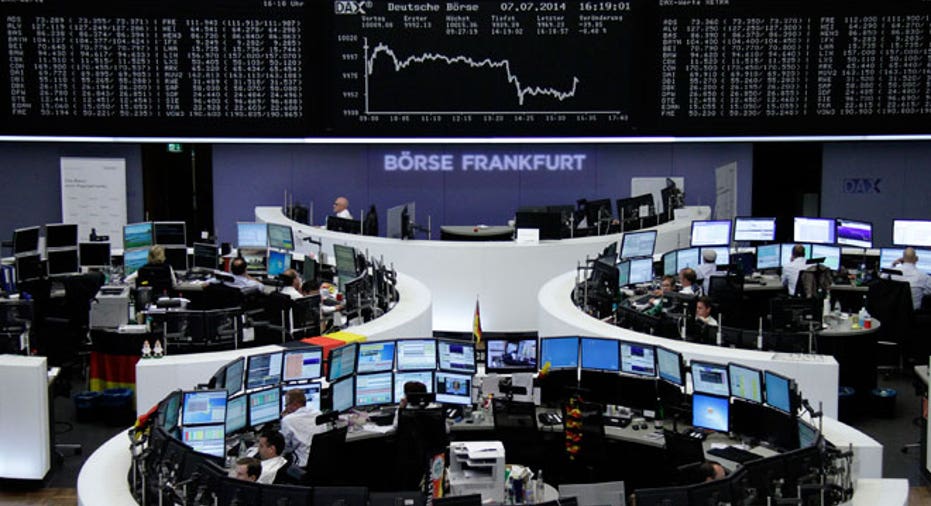Europe Stocks Rise, Dollar Up Before Jobs Data

European shares edged up on Wednesday after minor gains in Asia as Chinese import data signaled a recovering economy, while the dollar rose before jobs numbers that could help cement expectations that U.S. interest rates will rise next week.
The pan-European STOXX 600 index inched up 0.1 percent, after falling for the previous four trading days. Banks rose, while healthcare stocks fell after U.S. President Donald Trump said on Tuesday he was developing a plan to encourage competition in the drug industry.
Britain's blue-chip FTSE 100 index rose 0.1 percent before finance minister Philip Hammond unveils his first budget since the UK voted to leave the European Union.
China's imports in February grew 44.7 percent from a year earlier on a yuan-denominated basis and 38.1 percent in dollar terms, accelerating from the previous month and leading to a rare trade deficit. Exports rose 4.2 percent.
That briefly pushed the MSCI's broadest index of Asia-Pacific shares outside Japan higher, although it later traded flat. Mainland Chinese shares dipped but Hong Kong stocks rose 0.4 percent.
Sterling was an underperformer on currency markets, down 0.3 percent at $1.2161, having fallen to a fresh seven-week low of $1.2158. Below-forecast consumer spending data on Tuesday pushed the pound lower as it came after months of robust numbers and suggested the economy might be slowing.
The dollar rose 0.2 percent against a basket of currencies. It hit a seven-week high last week as a host of Federal Reserve officials talked up the chances of a rise in interest rates as soon as the March 14-15 meeting.
Some analysts are waiting for Friday's U.S. jobs data as a final piece of evidence supporting a 25 basis point rise, which futures prices indicate is an 83 percent probability. Investors will also be alert to signs of how many hikes to expect in 2017.
Private-sector U.S. employment data is due on Wednesday.
The euro weakened 0.1 percent to $1.0555 a day before a meeting of European Central bank policymakers.
The yen was marginally stronger at 113.92 per dollar.
"Unless the market were to price in a significantly more upbeat picture for the US, which would imply the Fed might move much more dynamically than is currently priced in, whether they hike two time or three times this year isn't going to matter for the dollar," said Sonja Marten, FX strategist at DZ Bank in Frankfurt.
ECB asset buying to stimulate the euro zone economy is among factors that have pushed yields on short-dated German government bonds to record lows in recent weeks.
Two-year yields edged down 1 basis point to minus 0.88 percent while 10-year yields rose 4 bps to 0.36 percent, taking the gap between them to 122 bps, its widest since July 2014.
Germany sells 4 billion euros of five-year bonds on Wednesday.
Oil prices fell in anticipation of data expected to show growing U.S. crude stockpiles. Brent, the international benchmark, fell 31 cents a barrel to $55.61.
"Oil is range-bound. If prices dip below $50 a barrel, OPEC will cut more; if it goes above $55 the U.S. will produce more," said Jonathan Barratt, chief investment officer at Ayers Alliance in Sydney.
Gold fell 0.3 percent to $1,211 an ounce, weighed down by the prospect of higher U.S. interest rates.
(Editing by Toby Chopra)



















